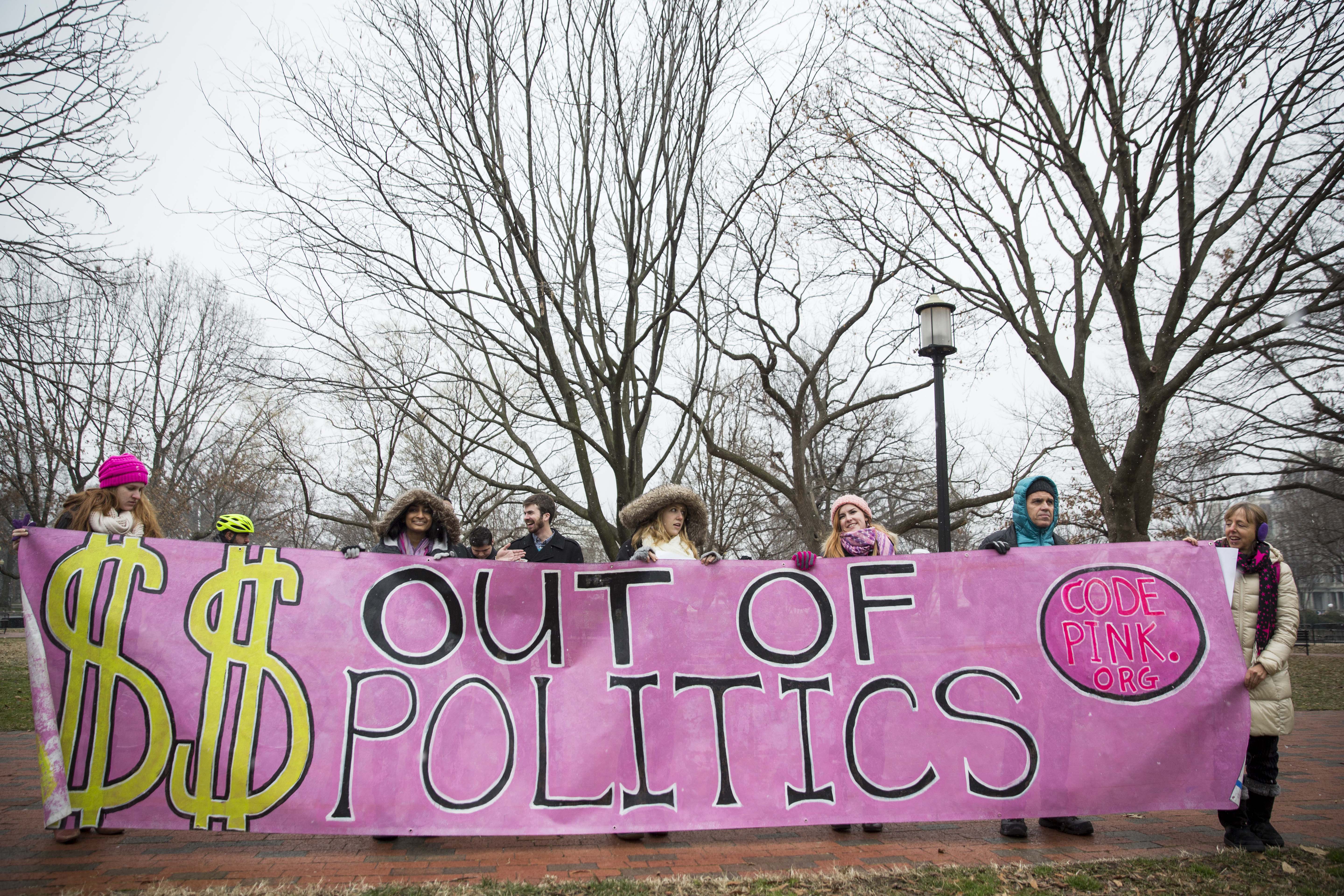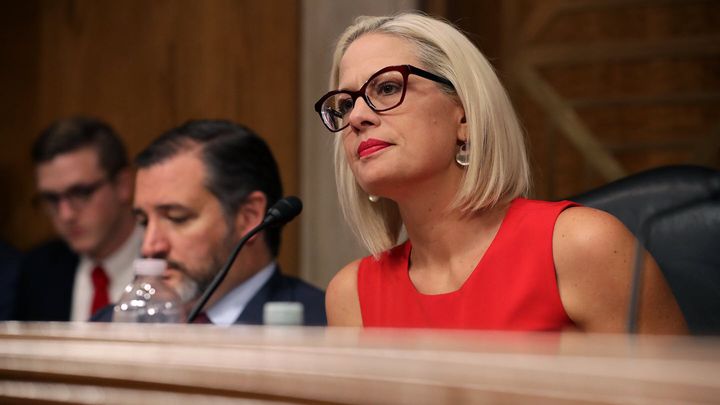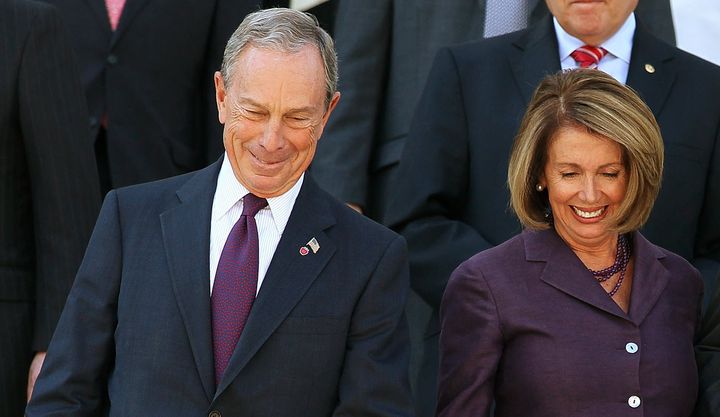In his victory speech on Election Night, Representative-Elect Max Rose summarized his campaign strategy to his supporters. “We wanted to show the country that you don’t need special interests, you don’t need lobbyists. You just need the people. In fact, they can keep their damn money.”
Rejecting corporate PAC donations was a successful strategy—one that helped Rose, a Democrat, knock off a Staten Island Republican incumbent who won that seat by 25 percentage points two years ago—that dozens of congressional candidates employed this year. More than 40 members of the next Congress have pledged to reject corporate PAC money, according to the campaign finance reform PAC End Citizens United.Most of these election winners will be new to Washington: 32 new Democratic House members said no to corporate cash—including 23 who flipped Republican seats—making up over half of the 58 candidates who will become freshmen representatives in January.
With a White House soaked in corruption allegations and a country mired in income inequality, opposing the power of big corporations and special interests has become popular among a majority of voters. Recent polls found that most Americans think that money in politics is the leading cause of dysfunction in U.S. politics, that new campaign finance laws could be written that would be effective in reducing the role of money in politics, and that “reducing the influence of special interests and corruption in Washington” is a very important issue.
As a campaign tactic, an anti-corporate approach is great for fundraising. By not taking corporate money, candidates are inspiring large numbers of individual donors to contribute to their campaigns, often surpassing the fundraising of their corporate-friendly opponents.
“What was so exciting about rejecting corporate PAC money,” End Citizens United Press Secretary Anne Feldman told Sludge, “was that obviously it’s the right thing to do—it is good policy, but it’s also good politics, and I think the fundraising example is Exhibit A on that…This idea is that your special interest is actually the people you’re going to be representing, and I think that is a simple but profound idea that really resonated with people.”

ActBlue, a service that aggregates small contributions from donor around the country, saw a sharp uptick in donations this election cycle and delivered $700 million to Democratic congressional candidates, something Republican Senate Majority Leader Mitch McConnell is trying to counter after his party was trounced in campaign fundraising.
By Sept. 30, Rose had raised nearly $1.5 million in ActBlue donations, almost half of his total contributions at that point. As of Oct. 17, he’d raised over $4.1 million for his campaign to represent New York’s 11th Congressional District, nearly double the $2.3 million that his opponent Dan Donovan took in, according to a ProPublica analysis.
As the anti-corporate PAC messaging spread in 2018, fundraising shot up for those candidates. End Citizens United found that in the first quarter of 2018, 16 anti-corporate candidates outraised their opponents. That number increased in quarter two, and then in the third quarter, 87 candidates rejecting corporate PAC money outraised their opponents.
This pattern didn’t hold up in every race but was quite common among End Citizens United-endorsed Democratic candidates. In Colorado’s 6th, Democrat Jason Crow ousted incumbent Republican Mike Coffman and had outraised him by $1.7 million as of Oct. 17. Antonio Delgado more than doubled incumbent John Faso’s campaign receipts, raising nearly $8 million and winning New York’s 19th. Abigail Spanberger’s $5.9 million more than doubled the campaign fundraising of incumbent David Brat, whom she bested in Virginia’s 7th. Kendra Horn raised $155,000 more than incumbent Steve Russell to take over the 5th District of deep red Oklahoma.
The table below shows the two-to-one fundraising advantage that most successful House challengers who rejected corporate PAC money enjoyed as of Oct. 17. Thirty Democratic candidates raised a combined $135 million for their campaigns without accepting money from corporate PACs. This figure and the table do not include incoming Reps. Ayanna Pressley (MA-07) and Alexandria Ocasio-Cortez (NY-14) because they faced no opponents in the general election
Table: Democrats Who Rejected Corporate PAC Money Raised Big Bucks from Individual Donors
‘Empowering People to Have a Say’
New Jersey Democrat Andy Kim was one of the first 2018 candidates to pledge to reject corporate PAC contributions. “I’ve thought for a long time that money has had a negative influence in politics,” Kim told Sludge. “I knew that it allowed for big corporations to say whatever they wanted for as long as they had the funds. But it wasn’t until I started to run for public office that I saw the other crucial aspect: it fundamentally changes the people who can run for office in the first place.”
Kim, who won his race to represent New Jersey’s 3rd Congressional District, said “the people were really drawn to” his anti-corporate PAC message. “New Jersey families can tell when people are looking out for them and when representatives are looking out for their corporate special-interest donors.”
Having outraised his incumbent opponent Tom MacArthur, the 19th-richest member of Congress, by roughly $750,000, Kim said his stance on corporate cash helped him fundraise.
“We wanted to be a grassroots campaign powered by people, but also empowering people to have a say and make the change they wanted to see. And at the end of the day, 90% of all of our donors were small-dollar donors,” Kim said.
Kim and a number of other candidates raked in small donations of $200 or less as they produced ads touting their rejection of corporate PAC money, and the ads appear to have resonated with voters. “What is service?” Kim asks in one campaign ad. “It’s putting people first, not special interests. It’s our health mattering more than corporate donations.”
MacArthur wrote a health care bill to deny protections for New Jerseyans with pre-existing conditions, says the narrator in another Kim campaign ad. “For what reason? To please his donors in Big Pharma.”
Similarly, several other challengers ran similar ads attacking the ties between incumbent lawmakers and special-interest groups or promoting their independence from corporations.
“Congressman Faso, you’ve taken over $800,000 from corporate donors and voted to take away health care,” says one of his constituents in a Delgado campaign ad. “Can you tell my daughter that all that money was worth it?”
In Spanberger’s “Stack” ad, she closes by saying, “With all the money in politics it’s hard to say who has our backs…I won’t take corporate PAC money, because in Congress I’ll always have your back. And that’s why I approve this message.”
In Rose’s “Sellout” ad, the narrator talks about opioid addiction and says that his opponent Donovan “took thousands of dollars from the very executives fueling the opioid crisis, even one who got convicted for it. So how’s he gonna stop the opioid epidemic if he sold out to the drug companies that caused it?”
Independent political spending groups attempted to make up the fundraising difference for Donovan, devoting $1.1 million towards ads backing the Republican incumbent, according to a ProPublica analysis. But the outside money wasn’t enough to save Donovan, who lost by over five percentage points last week.
End Citizens United made independent expenditures of its own. A federal PAC, it raised $27.2 million this cycle, spending $12.6 million on independent expenditures benefiting their endorsed candidates—including $180,000 supporting Rose—as well as donating directly to candidates’ campaigns. The vast majority of its individual contributions were $200 or less.
End Citizen United’s Feldman explained to Sludge that her group endorsed some candidates who did accept corporate PAC money but whom the group expects will work to limit the influence of money on politics while in Congress. Sludge previously reported that End Citizens United donated to candidates heavily funded by corporate PACs.
Rejecting corporate PAC money does not necessarily insulate candidates from corporate cash. Executives can still give individual contributions of $2,700 per election ($5,400 for a primary and general combined) to campaign committees. For example, Rose got some last-minute cash from media executive Jon Fine ($2,700), venture capitalist Laurel Tauby ($2,700), a Morgan Stanley managing director Bill Reiland ($2,500).
Kim received large donations from CEOs of a hedge fund, a real estate development firm, and Estee Lauder. Contributions of $2,000 or more made up the largest chunk of his individual donations, but small donations of $200 or less were close behind, accounting for 27 percent of his individual donations, or $1.3 million. Kim told Sludge, “I will never go to a corporation and ask for their support. I will always listen to New Jersey families and put them first. I won’t let corporations jump the line.”
What’s Next
After being attacked by Democrats and watching their electoral influence wane, corporate PACs immediately launched a campaign to bolster their image. Just two days after the election, the National Association of Business PACs, a lobbying group for corporate PACs, was already close to finalizing a strategy to convince legislators, candidates and the media that under-regulated outside spending groups are the real threat to democracy. Corporate PACs, which are subject to transparency requirements and contribution limits, should actually be allowed to donate more money to candidates, Geoff Ziebart, executive director of the National Association of Business PACs, told Politico. Ziebart said he did not have time to comment on Thursday.
In the current political climate, corporate PAC donations can often be a liability for candidates, and given the success of the anti-corporate PAC electoral strategy in 2018, it’s likely that an increasing number of candidates will utilize this tactic and, thus, further diminish the influence that corporate PACs have on elections.
With the elections mostly over, it will soon be time to see whether these candidates stick to their pledge and work towards major campaign finance reform legislation. The early signs are good for reform advocates; 107 Democratic House candidates signed a letter sent to the current members of Congress before Election Day promising to make a government and election reform bill their first order of business in the next session of Congress. Forty-two won their races.
“We must all acknowledge the corrosive role money and special interests have played in shaking the American people’s faith in the system,” reads the letter, which the authors wrote to “put Congress on notice.” The reform advocates wrote of their commitment to reforms such as “providing incentives for donors to make small contributions to federal candidates,” requiring disclosure of all political spending, and “shutting the revolving door between elected officials and the professional, special-interest lobbying industry.”
Kim said that among the money-in-politics reforms he plans to promote are those that “don’t allow corporations and corporate PACs to influence members on committees that oversee their specific industry.” He wants to pass legislation to keep foreign money out of U.S. elections and make political ad funding more transparent, and he wants to address the problems of gerrymandering and voter suppression to make elections “as fair as possible.”
Democratic House leaders have stated that ethics and election reforms are at the top of their agenda for the next Congress. Democratic Whip Steny Hoyer said at a September event organized by End Citizens United’s sister group, End Citizens United Action Fund, that he would prioritize a comprehensive bill that would increase disclosure for “dark money” groups, establish a public campaign financing program for House candidates, and overturn the Supreme Court’s 2010 Citizen United decision, the reform group’s namesake that allowed unlimited special-interest money into politics.
Recently, Democrats said they’d make this bill H.R. 1, the first legislation they’ll write in the 116th Congress.
End Citizens United is closely monitoring developments on this front and plans to push to make sure these reforms become proposed legislation.
The rejection of corporate PAC money is not confined to the House. Rising Democratic stars in the Senate with White House ambitions including New York Sen. Kirsten Gillibrand, New Jersey Sen. Cory Booker, and California Sen. Kamala Harris have also pledged to reject donations from corporate PACs, perhaps setting the tone for the next two years of liberal legislation and for the 2020 Democratic primary, which may also include campaign finance reform advocates Bernie Sanders (Vt.) and Elizabeth Warren (Mass.), who also reject corporate PAC money.
Related:



